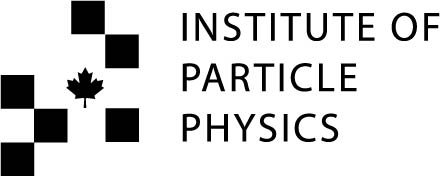
Created in 1971, the Institute of Particle Physics is Canada’s professional organization for academics across the country engaged in particle physics research. With over 200 members representing significant talent and expertise within astroparticle physics in Canada, the IPP is a natural partner for the McDonald Institute.
The IPP itself employs eight research scientists engaged in various particle physics projects which are operating and being developed around the world. These research scientists will be working to support the new faculty hired through the McDonald Institute CFREF funding. New faculty hired as part of the McDonald Institute will also be joining the IPP, giving them access to the professional resources offered to members. Students will also benefit from the partnership between the IPP and McDonald Institute: the IPP has a summer program for undergraduate physics students, where they spend two months working with Canadian researchers at institutions across the country, and then two months at CERN in Switzerland.
Historically, the IPP has focused on projects that have contributed to ground-breaking particle physics discoveries. The 2008, 2012, and 2015 Nobel Prizes in physics were all awarded for discoveries in which IPP members were instrumental. The BaBar experiment confirmed the matter-antimatter asymmetry theory for which the 2008 prize was awarded, and the ATLAS experiment at CERN experimentally confirmed the Higgs Boson, which garnered the 2012 prize. Both of these experiments and SNO, which directly received the 2015 Nobel Prize, were supported by Canadian researchers through the IPP.
The Institute works to increase Canadian scientific impact on the international stage by encouraging members to collaborate and focus their expertise only on projects that complement, rather than compete with, each other. In much the way the McDonald Institute is working to unify the entire astroparticle physics community in Canada, the IPP is working to unify Canadian researchers involved with international experiments. The IPP also serves as an advisory organization to NSERC, soliciting input from its members before providing briefs on funding allocation and long-term planning around particle physics in Canada. The Institute of Particle Physics is an important advocate for astroparticle physics in Canada and, together with the McDonald Institute, will be able to raise the profile of the field, both within Canada and abroad. This will further cement Canada’s position as a leader in the field and increase the output of leading-edge science.
The Institute of Particle Physics is physically located within the University of Victoria. The University of Victoria acknowledges and respects the lək̓ʷəŋən peoples on whose traditional territory the university stands, and the Songhees, Esquimalt and W̱SÁNEĆ peoples whose historical relationships with the land continue to this day. Read more
